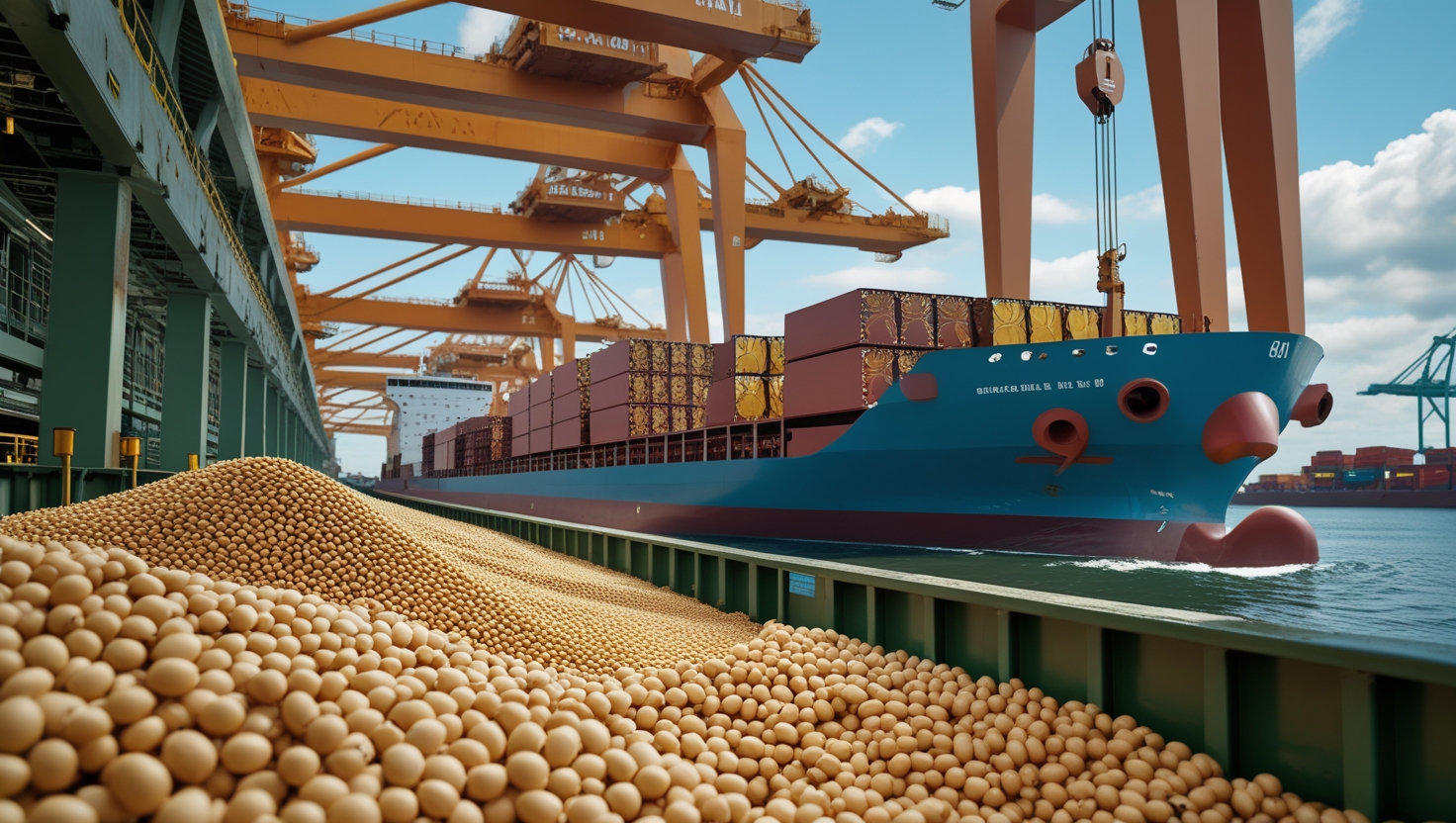
Brazil is one of the world’s largest food exporters, playing a crucial role in supplying global markets with commodities and processed goods. With a diverse agricultural sector, advanced technology, and vast arable land, the country meets demand across Asia, Europe, the Middle East, and Africa.
In this article, we’ll highlight the 10 biggest food-exporting companies in Brazil, covering their locations, years in operation, key products, and what makes them stand out in the global market. We’ll also explore how Brazil is expanding its international trade presence and why sourcing from Brazilian suppliers can be a smart move for importers worldwide.
Contents
Location: São Paulo, SP
Years in operation: 70+
Key exports: Beef, pork, poultry, processed meats
JBS is the world’s largest protein producer, operating in over 20 countries. Founded in 1953, the company stands out for its massive production scale, strict quality controls, and international certifications. Its biggest markets include China, the U.S., and the European Union.
Location: São Paulo, SP
Years in operation: 50+ (in Brazil)
Key exports: Soybeans, corn, wheat, vegetable oils
A global leader in commodity trading, Cargill has a strong presence in Brazil. The company invests in integrated logistics, storage, and grain processing, ensuring efficient exports. Its products are in high demand across Asia and the Middle East.
Location: São Paulo, SP
Years in operation: 100+
Key exports: Soybeans, vegetable oil, soybean meal, sugar
Bunge is a powerhouse in agribusiness and processed foods, operating across the entire supply chain. With its own ports, the company facilitates large-scale exports, supplying key ingredients for animal feed and food industries.
Location: São Paulo, SP
Years in operation: 170+ (globally), 50+ (Brazil)
Key exports: Coffee, cotton, orange juice, grains
One of the world’s top agricultural traders, LDC is a major player in Brazil. The company excels in exporting orange juice (Brazil is the global leader) and coffee, serving markets in Europe and North America.
Location: Cuiabá, MT
Years in operation: 40+
Key exports: Soybeans, corn, cotton
A leader in family-owned agribusiness, Amaggi has a strong footprint in Brazil’s Midwest. The company prioritizes sustainability and traceability, ensuring premium-quality products for Europe and Asia.
Location: São Paulo, SP
Years in operation: 10+ (in Brazil)
Key exports: Soybeans, corn, sugar
A Chinese-owned firm, COFCO is a major exporter of grains to China. Its vertical integration strategy ensures competitiveness in global markets.
Location: Itajaí, SC
Years in operation: 90+
Key exports: Chicken, sausages, processed foods
One of the world’s top poultry exporters, BRF owns well-known brands like Sadia and Perdigão. Its halal and kosher certifications make it a key supplier to Muslim and Jewish markets.
Location: São Paulo, SP
Years in operation: 30+
Key exports: Soybeans, corn, biodiesel
A global agribusiness giant, ADM invests in biofuels and sustainable foods, catering to European and Asian demand.
Location: São Paulo, SP
Years in operation: 50+
Key exports: Beef, chicken
A leading beef exporter, Marfrig supplies global fast-food chains and supermarkets with high-quality, certified meats.
CLICK HERE TO ACCESS MARFRIG’S EXPORT SECTOR
Location: Rio de Janeiro, RJ
Years in operation: 20+
Key exports: Coffee, sugar, ethanol
Specializing in agricultural commodities, Agrex exports to over 50 countries, including the U.S. and Europe.
Brazil isn’t just a bulk commodity exporter—it’s also increasing shipments of value-added and processed goods. Key trends include:
Growing protein exports (chicken, beef, pork)
Rise in organic and sustainable products
Biofuel expansion (ethanol, biodiesel)
Agtech innovations (GMOs, traceability)
With trade deals like Mercosur-EU and strong ties to China, Brazil is becoming an even more strategic global supplier.
⇒Massive production capacity (one of the world’s top breadbaskets)
⇒Globally recognized quality (ISO, FSSC 22000 certifications)
⇒Competitive pricing (strong cost-benefit advantage)
⇒ Efficient logistics (modern ports, export corridors)
Mello Commodity specializes in exporting sugar, soybeans, and corn from Brazil. With a focus on quality and logistics, the company serves global buyers looking for:
√ High-purity sugar (raw, crystal & refined)
√ Non-GMO, traceable soybeans
√ High-protein corn
If you’re a food importer, sourcing from Mello Commodity ensures access to top-tier Brazilian products at competitive prices. Fill out the form below and request a quote.
Brazil solidifies its position as a leading global food supplier, backed by strong companies and high-quality products. Whether you need bulk commodities or processed foods, the country offers reliability and cost efficiency.
For importers seeking trusted suppliers, the companies listed above—and Mello Commodity—present real business opportunities.
Interested in importing from Brazil? Contact industry experts and explore the best deals today!

The international trade of agricultural commodities is a billion-dollar industry that moves tons of products like sugar, soybeans, and corn every day. However, behind the major transactions and million-dollar contracts, there is a dark side that can turn a great deal into a financial nightmare.
Agricultural commodity importers face a constant challenge: ensuring they are dealing with reliable suppliers. Unfortunately, scams in commodity imports are more common than many realize, leading to massive financial losses and compromising the reputation of entire companies.
In this article, we will expose the most common scams in the agricultural commodity trade and reveal essential strategies to avoid them. If you want to protect your investments and close secure deals, keep reading until the end.
Contents
Imagine finding a supplier with below-market prices, excellent payment terms, and fast delivery. Everything seems perfect until, after making the payment, the company disappears. This scam is one of the most common in the agricultural commodity trade.
How It Works: The scammer creates a fake company, usually with a well-designed website and forged documents. They offer irresistible prices and convince the importer to pay in advance. After receiving the payment, the “company” disappears.
How to Avoid It: Always verify the supplier’s history. Request references, research in reliable databases, and be wary of offers that are too good to be true.
An importer signs a contract with a supposedly legitimate supplier and receives all the necessary documentation for the import. However, when trying to clear the cargo at the port, they discover that the documents are fake.
How It Works: Certificates of origin, commercial invoices, and even phytosanitary licenses can be forged. The importer believes everything is in order until customs authorities identify the fraud.
How to Avoid It: Work with experienced customs brokers and verify the authenticity of the documents directly with the issuing authorities.
You pay for sugar, soybeans, or corn, but when it’s time for delivery, the cargo simply does not exist. This scam has defrauded importers worldwide and can cost millions.
How It Works: The supplier sends authentic documents, ensuring that the goods are ready for shipment. However, the cargo never arrives, and the supplier vanishes.
How to Avoid It: Insist on pre-shipment inspections conducted by independent auditing firms. Purchase international cargo insurance to minimize risks.
A contract is signed, a price is agreed upon, and suddenly, the supplier claims that costs have increased and demands an extra payment to release the goods.
How It Works: The supplier charges an additional fee, citing exchange rate fluctuations, unexpected costs, or customs requirements. If the importer refuses to pay, they lose their initial investment.
How to Avoid It: Ensure that all terms are detailed in the contract. Use clauses that protect against abusive price adjustments and require guarantees before making any payment.
Many importers rely on brokers to find reliable suppliers, but not all intermediaries are legitimate.
How It Works: The broker charges fees for the negotiation but, in reality, has no actual contacts with suppliers. They simply disappear after receiving payment.
How to Avoid It: Work only with recognized brokers in the market. Request proof of relationships with suppliers before closing any deal.
Supplier Verification: Use specialized platforms to validate the reputation and certification of companies.
Detailed Contracts: Formalize all terms in well-structured contracts reviewed by international trade lawyers.
Use of Letters of Credit: Prefer payments via letters of credit rather than direct transfers.
Audits and Inspections: Before shipment, hire companies to inspect the cargo and ensure it exists and meets specifications.
Trusted Supplier Guide: Use specialized directories to find legitimate suppliers and avoid unnecessary risks.
The agricultural commodity trade offers lucrative opportunities but also presents significant challenges and risks. Commodity import scams can result in million-dollar losses, putting an entire company’s operations at risk.
That’s why the best defense against fraud is prevention. Verifying suppliers, formalizing solid contracts, and using reliable intermediaries are essential steps to ensuring that your transactions are secure and profitable.
If you want to import safely, check out our Trusted Supplier Guide. With it, you will gain access to a carefully curated list of legitimate and vetted suppliers, minimizing risks and increasing your chances of success in international trade.
Access the Trusted Supplier Guide Now and protect your investments!
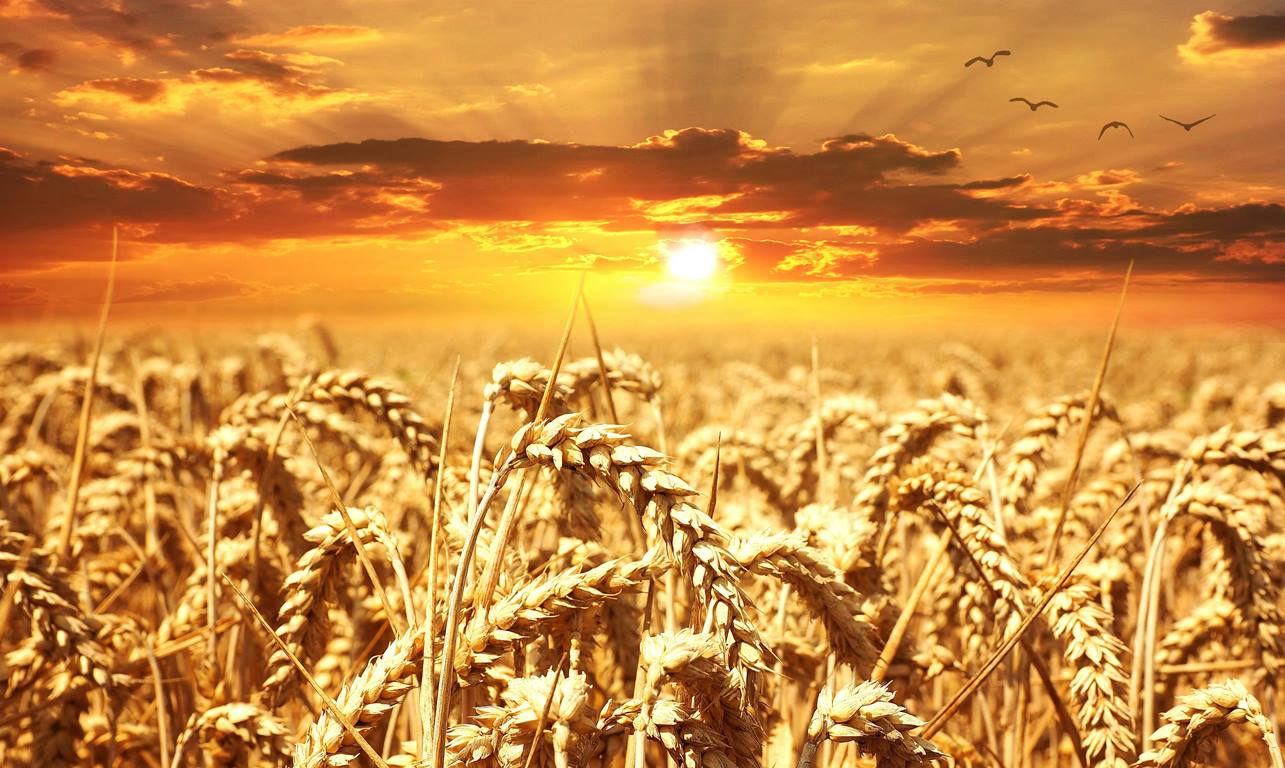
Brazil, the World’s Food Bank! A strategic guide for smart importers – with data that will shock even market veterans.
Did you know that 1 in 3 foods consumed in the world today comes from Brazil?
Brazil has solidified its position as a global powerhouse in food production, earning the title of the “world’s food bank.” With vast arable land, favorable climate, and advanced agricultural technology, the country has become the leading supplier of key commodities like soy, sugar, coffee, and meat. If you’re in the food import business, understanding how to tap into Brazil’s agricultural wealth is essential to staying competitive in the global market.
Contents
The Brazilian agribusiness sector plays a crucial role in feeding the world. As one of the top exporters of agricultural commodities, Brazil supplies a significant portion of the global demand for beef, poultry, corn, and coffee. The country’s ability to produce large quantities at competitive prices makes it an attractive source for importers worldwide.
According to data from the Brazilian Ministry of Agriculture, Brazil exported over 100 million tons of soybeans in 2023, maintaining its status as the world’s top soybean supplier. The country also leads in sugar exports, supplying nearly 50% of the global sugar market. Additionally, Brazil is the largest exporter of halal-certified poultry, meeting the growing demand in Middle Eastern and Asian markets.
Brazil’s agricultural success is attributed to several key factors:
Favorable Climate and Rich Soil: The country’s vast and fertile land allows for year-round production of essential crops.
Cutting-Edge Technology: Brazilian agribusinesses have embraced modern farming techniques, including precision agriculture, genetically improved seeds, and sustainable farming practices.
Strong Export Infrastructure: With an extensive network of ports, highways, and railways, Brazil efficiently exports its agricultural goods to global markets.
Diverse Production Capacity: The country produces a wide range of agricultural products, from grains and fruits to high-quality meats, allowing importers to source multiple commodities from a single supplier.
While Brazil offers immense opportunities for food importers, navigating the market can be challenging. Language barriers, regulatory requirements, and supplier reliability are common concerns for international buyers. However, those who successfully establish relationships with reputable suppliers gain access to high-quality products at competitive prices.
Brazil has one of the most extensive agricultural supply chains in the world, but logistical challenges still exist. The country has made significant investments in transportation infrastructure, but bottlenecks at ports and inefficiencies in inland freight transportation can sometimes cause delays. Importers should plan ahead and work closely with experienced logistics providers to ensure smooth deliveries.
Importers must ensure that Brazilian suppliers meet international quality standards. Many agricultural products require certifications such as:
ISO 9001 & ISO 22000 for food safety
HACCP (Hazard Analysis and Critical Control Points) for risk management in food production
Halal & Kosher Certifications for specific market requirements
USDA & FDA Approval for exports to the United States
Working with certified suppliers ensures compliance with import regulations and reduces the risk of shipment rejections.
For importers looking to source from Brazil, finding trustworthy suppliers is essential. The Mello Commodity Supplier Guides provide comprehensive directories of verified Brazilian exporters, helping businesses connect with reputable partners in the industry. These guides simplify the sourcing process, reducing risks and ensuring access to top-quality agricultural products.
Many successful importers have leveraged these guides to establish long-term partnerships with Brazilian suppliers. For example, a European food distributor specializing in organic produce successfully expanded its product line by using the Mello Commodity Supplier Guides to find certified organic fruit and vegetable producers in Brazil.
Brazil’s agricultural exports have transformed businesses worldwide. One notable case is a Chinese meat distributor that shifted its sourcing strategy to Brazil due to rising costs in other markets. By partnering with Brazilian beef and poultry suppliers, the company was able to reduce procurement costs by 20% while maintaining high product quality.
Another example is a Middle Eastern food importer that sought a reliable source of halal-certified chicken. By connecting with Brazilian suppliers through trusted sourcing guides, the company secured long-term contracts that enabled stable supply chains and expanded market reach.
As global demand for food continues to rise, Brazil is expected to strengthen its role as a key player in the international market. Innovations in sustainable farming, advancements in logistics, and growing trade agreements will further solidify the country’s position as the world’s food bank.
Brazil is investing heavily in sustainability, with initiatives such as reforestation programs, carbon-neutral farming, and precision agriculture that reduces waste. These advancements make Brazilian agricultural products even more attractive to importers who prioritize environmental responsibility.
Brazil’s position as a global food supplier is stronger than ever, with vast agricultural resources, advanced technology, and efficient export infrastructure. Importers looking to secure high-quality agricultural commodities should explore the opportunities Brazil has to offer.
By leveraging Brazil’s agricultural resources and partnering with trusted suppliers through the Mello Commodity Supplier Guides, food importers can secure a steady supply of high-quality commodities, enhancing their business growth in the competitive global market. Whether sourcing soy, meat, sugar, or specialty foods, Brazil remains a top choice for importers worldwide.
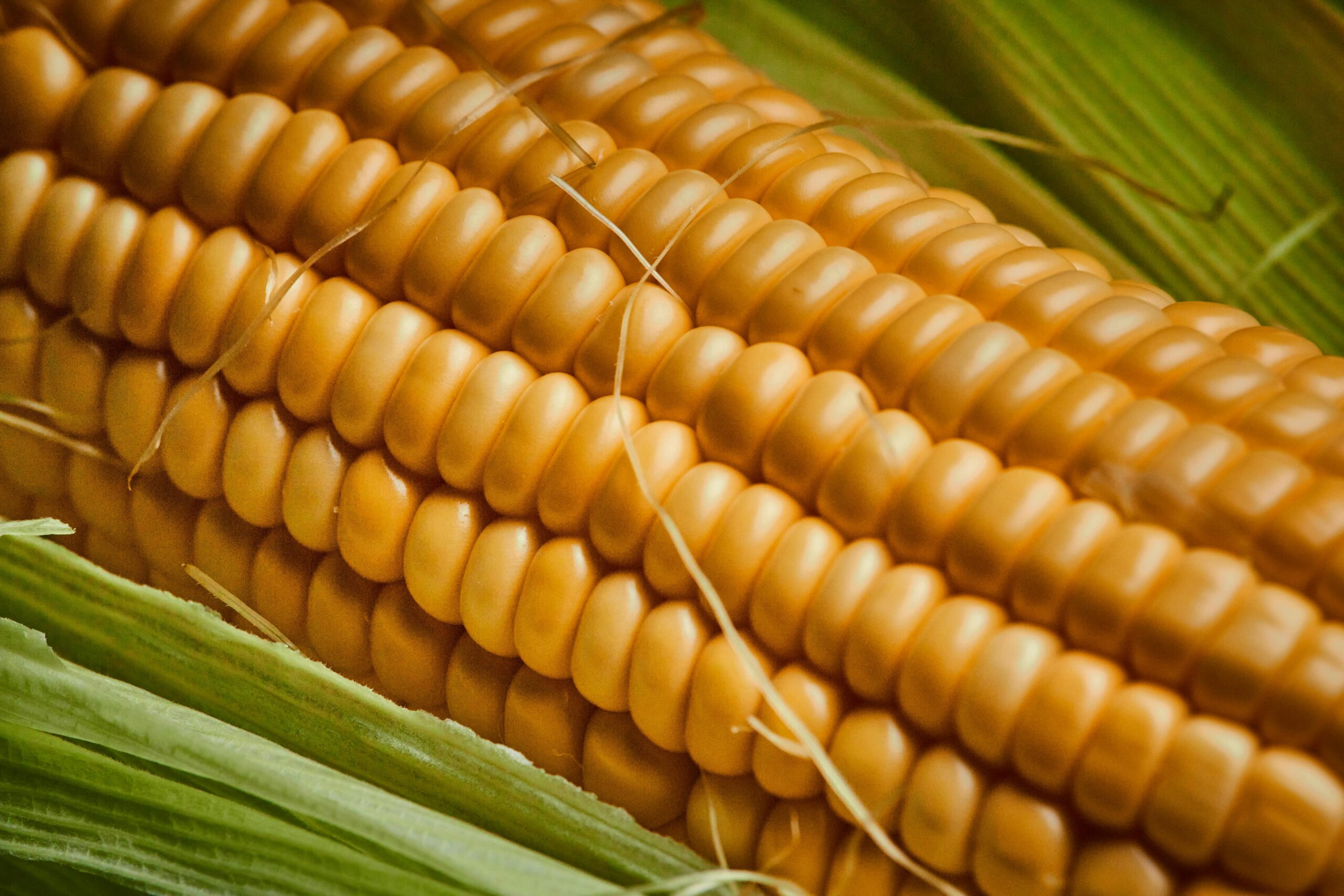
Contents
The global food trade is undergoing a massive transformation. From soybean exports in Brazil to wheat shipments from Ukraine and corn exports from the United States, international agricultural commodity trading is the backbone of the food supply chain.
Importers around the world are realizing the massive opportunity that lies in securing reliable sources of bulk agricultural products. Whether you’re sourcing grain, sugar, meat, or oilseeds, making the right decisions can translate into significant profits.
But how do you navigate this complex landscape? What are the global food trade trends to watch? And where are the most promising emerging markets for food imports?
This guide is designed to answer all of that.
Agricultural commodities are raw or minimally processed products that are traded globally and form the foundation of the global food system.
Grains and Cereals: Corn, wheat, rice, barley, oats
Oilseeds: Soybeans, sunflower, rapeseed
Animal Proteins: Chicken, pork, beef
Fruits and Vegetables
The global agricultural commodity market was valued at over $5.2 trillion in 2023, with projections indicating a consistent 6-8% annual growth rate through 203
As global population increases—expected to hit 9.7 billion by 2050—so does the demand for food.
Droughts, floods, and weather unpredictability in key regions like the U.S., Brazil, and Southeast Asia impact the reliability and cost of agricultural commodity supply.
Bilateral and multilateral trade deals significantly shape the flow of goods. Disruptions such as the Ukraine-Russia conflict or U.S.-China tariffs have major ripple effects.
From blockchain to AI-based price forecasting, technology is revolutionizing agricultural commodity trading.
Brazil has become a powerhouse in agricultural exports due to its vast farmland, ideal climate, and significant investments in agritech.
Total export value: $148.4 billion
Growth vs. 2023: +5.7%
Top products exported: Soybeans ($67B), Corn ($13B), Beef ($10B), Chicken ($9.3B)
Brazil surpassed the U.S. in soybean and chicken exports, now leading the global ranking.
According to the FAO, global demand for food is projected to increase by 70% by 2050.
World population: 9.7 billion
Highest demand growth: Animal proteins, grains, oilseeds
| Year | Event |
|---|---|
| 1995 | WTO formed – global agri trade liberalization begins |
| 2000s | Asian demand for soy and corn skyrockets |
| 2015 | Latin America boosts exports via trade agreements |
| 2020 | COVID-19 disrupts logistics, accelerates digitization |
| 2023 | Global conflict leads to food security concerns |
| 2024 | Brazil reaches record-high agri exports |
China: World’s top importer of soybeans, corn, and beef
India: Rising demand for wheat, sugar, and oilseeds
Southeast Asia: Key buyers of poultry, rice, and palm oil
Strategy: Offer contract consistency, Halal certification, and competitive shipping.
Dependent on imports due to low local production
Primary commodities: wheat, rice, sugar, frozen meat
Opportunity: Suppliers offering Halal certification and robust cold-chain logistics.
High value but strict standards (traceability, organic, sustainability)
Emerging trend: Focus on regenerative agriculture and low-carbon footprint products.
This article has been optimized for top-performing SEO keywords in the agricultural commodities niche:
agricultural commodity trading
global food trade
grain imports
bulk agricultural products
soybean exporters
wheat suppliers
corn exporters
international food supply chain
sustainable agriculture trade
emerging markets for food imports
These keywords were strategically placed to increase search engine ranking and improve visibility among global importers.
PLANNING
┌──────────────┐
│ Identify key │
│ commodities │
└──────┬───────┘
↓
MARKET RESEARCH
┌──────────────┐
│ Study trends │
│ and volumes │
└──────┬───────┘
↓
SUPPLIER SELECTION
┌──────────────┐
│ Check certs │
│ & capacity │
└──────┬───────┘
↓
NEGOTIATION & CONTRACTS
┌──────────────┐
│ Discuss T&C, │
│ logistics │
└──────┬───────┘
↓
SHIPPING & DELIVERY
┌──────────────┐
│ Coordinate │
│ freight, docs│
└──────┬───────┘
↓
QUALITY INSPECTION
┌──────────────┐
│ Verify goods │
│ upon arrival │
└──────────────┘

Key Criteria:
Strong track record of exports
International certifications (ISO, HACCP, Halal, Kosher)
Capacity for large-volume fulfillment
Transparent documentation & sample policies
Verified profiles – DOWNLOAD THE SUPPLIERS GUIDE
Tip: Start with small trial shipments before scaling up.
The global food trade is full of opportunities—but only for those who act strategically. Understanding the trends, identifying the right suppliers, and staying up to date with data and certifications will give you the edge in the competitive world of agricultural commodity importing.
As global populations grow, food demand will soar. Importers who prepare now can build long-term relationships and secure profitable deals.
Whether you’re just starting or looking to expand your import portfolio, this is the moment to go all-in.
Download our exclusive Brazilian Agricultural Exporters Guide featuring verified suppliers of soybeans, corn, meats, sugar, and more.
Click here to access the guide
Grow smarter. Import better. 🌾

Brazil is the world’s largest sugar exporter, playing a crucial role in the global food supply chain. With efficient production and well-structured logistics, the country supplies companies worldwide that rely on sugar to manufacture various products. In this article, we explore the significance of Brazilian sugar, the types sold, and the key companies involved in this market.
Contents
Currently, Brazil accounts for approximately 40% of the world’s exported sugar, solidifying its position as the largest supplier. The Brazilian sugar and ethanol sector benefits from favorable climate conditions, vast sugarcane plantations, and advanced technology in production and refining.
Among the main consumer markets for Brazilian sugar are China, India, the European Union, Indonesia, and the United States. Many industries depend on this raw material to produce beverages, confectionery, bakery items, dairy products, breakfast cereals, sauces, and processed foods.
BRAZILIAN SUGAR – Brazil exports various types of sugar to meet the needs of the global industry. The main ones include:
VHP Sugar (Very High Polarization) – Also known as Brown Sugar, this high-polarization raw sugar is widely used by refineries worldwide to produce refined sugar.
Refined Sugar ICUMSA 45 – The purest and whitest sugar, widely used in the food and pharmaceutical industries.
Crystal Sugar – Used in the production of beverages, candies, and industrial products.
Liquid Sugar – Popular in the beverage and processed food industry.
Brazilian sugar is an essential ingredient for various global companies, including:
Coca-Cola and PepsiCo (beverages and soft drinks)
Nestlé and Mondelez (chocolates, cookies, and dairy products)
Ferrero (sweets and confectionery)
General Mills (breakfast cereals and baked goods)
Unilever (ice creams and sauces)
The high demand for quality sugar on a large scale makes Brazil a strategic supplier for these industry giants.
TOP BRAZILIAN SUGAR COMPANIES
1 – Copersucar – The world’s largest sugar and ethanol cooperative.
2 – Raízen – A joint venture between Shell and Cosan, one of the top exporters.
3 – Tereos – A French multinational with a strong presence in Brazil.
4 – São Martinho – Specialized in the supply of VVHP sugar
5 – Usina Coruripe – One of the country’s leading sugar and ethanol producers
Companies interested in importing Brazilian sugar must work with reliable suppliers to ensure quality and secure transactions. Mello Commodity Brasil specializes in connecting international buyers with the best sugar producers in the country, offering competitive trade conditions and expert support throughout the importation process.
Contact Mello Commodity Brasil today and secure the best Brazilian sugar supply for your industry!
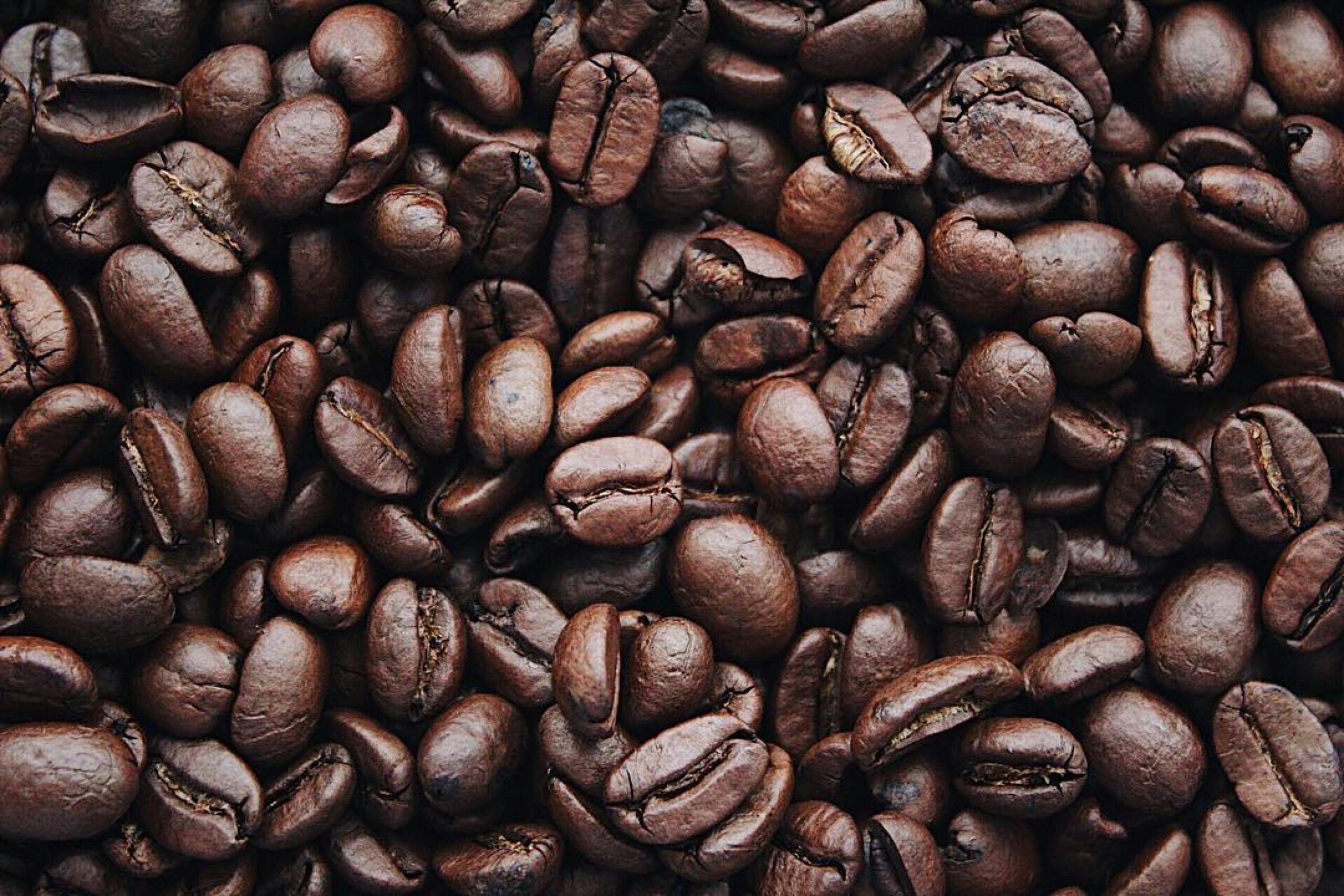
Brazil is the world’s largest exporter of coffee, supplying high-quality beans to markets across the globe. With a well-established industry, Brazilian coffee exporters have built a reputation for excellence, meeting the demands of consumers in North America, Europe, and Asia.
In this article, we will explore the 10 largest coffee exporters in Brazil in 2024, including their financial standing, product range, certifications, and primary export destinations. Additionally, we will discuss the challenges of importing Brazilian coffee, common scams in the industry, and how to access a verified guide of 50 Brazilian Coffee Exporters to ensure safe and reliable transactions.
Contents
Financial Standing: One of the largest coffee cooperatives in the world, with billions in revenue.
Type of Coffee Exported: Arabica coffee, specialty coffee.
Certifications: Rainforest Alliance, UTZ, Fair Trade, ISO 9001.
Export Destinations: United States, Europe, Asia.
Financial Standing: A leading coffee exporter with a strong global presence.
Type of Coffee Exported: Arabica and Robusta coffee.
Certifications: UTZ, Rainforest Alliance, Fair Trade.
Export Destinations: Europe, North America, Middle East.
Financial Standing: A major global coffee trader with operations in Brazil.
Type of Coffee Exported: Arabica, Robusta, specialty coffee.
Certifications: Rainforest Alliance, UTZ, Fair Trade.
Export Destinations: Europe, United States, Asia.
Financial Standing: A subsidiary of the multinational Olam, with a strong export presence.
Type of Coffee Exported: Arabica and Robusta coffee.
Certifications: Rainforest Alliance, UTZ, Fair Trade.
Export Destinations: North America, Europe, Asia.
Financial Standing: Part of the Volcafe Group, a major global coffee trader.
Type of Coffee Exported: Arabica, Robusta, specialty coffee.
Certifications: Rainforest Alliance, UTZ.
Export Destinations: Europe, United States, Middle East.
Financial Standing: A growing exporter focusing on high-quality specialty coffee.
Type of Coffee Exported: Specialty Arabica coffee.
Certifications: Fair Trade, Rainforest Alliance, UTZ.
Export Destinations: North America, Europe, Japan.
Financial Standing: A well-established exporter specializing in high-quality coffee.
Type of Coffee Exported: Specialty and organic coffee.
Certifications: Rainforest Alliance, Fair Trade, UTZ.
Export Destinations: United States, Europe, Middle East.
Financial Standing: A major cooperative with a strong global presence.
Type of Coffee Exported: Arabica coffee, certified coffee.
Certifications: Rainforest Alliance, UTZ, Fair Trade.
Export Destinations: Asia, Europe, North America.
Financial Standing: A cooperative focused on expanding its global market.
Type of Coffee Exported: Arabica coffee, specialty coffee.
Certifications: UTZ, Fair Trade, Rainforest Alliance.
Export Destinations: North America, Europe, Asia.
Financial Standing: A premium coffee producer and exporter with high-end clients.
Type of Coffee Exported: Specialty Arabica coffee.
Certifications: Rainforest Alliance, Fair Trade, UTZ.
Export Destinations: Europe, United States, Asia.
Despite Brazil’s leadership in coffee exports, there are significant challenges for international buyers:
Strict quality and certification requirements that must be met for specialty and organic coffee.
High production and logistics costs that affect final pricing.
Intense competition among global coffee traders.
Difficulties in accessing reliable suppliers and ensuring contract fulfillment.
For importers, it is essential to work with verified suppliers and establish strong partnerships to navigate these challenges effectively.
Coffee exports by country – https://estatisticas.abic.com.br/estatisticas/exportacoes-brasileiras-de-cafe-torrado/
Fraud is a serious issue in the coffee trade, with scammers using various tactics to deceive buyers. Some common scams include:
Fake exporters setting up professional-looking websites and offering deals that are too good to be true.
Fraudulent brokers who disappear after receiving payments.
Counterfeit certifications that misrepresent the quality or origin of the coffee.
To avoid scams, always verify supplier credentials, request references, and use secure payment methods.
If you’re looking to import Brazilian coffee safely and efficiently, the Brazilian Coffee Exporters Guide is your best resource. This guide contains verified and updated information on 100 reliable coffee exporters, including:
Direct contact details of certified suppliers.
Export certifications and quality standards.
Avoid scams and trade only with legitimate companies!
Don’t take risks! Get access to the most complete guide for Brazilian coffee exporters today.
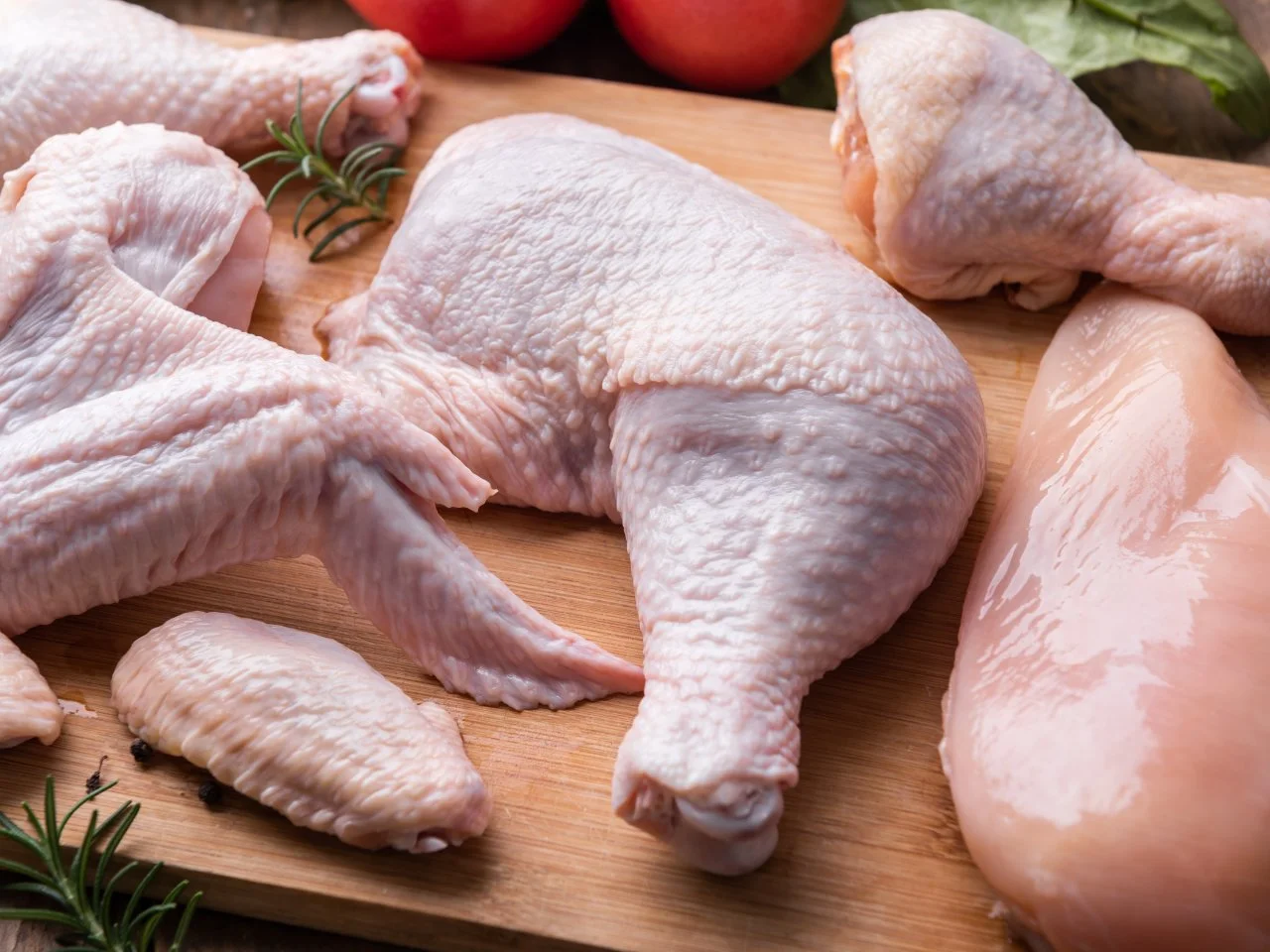
Brazil is the world’s largest exporter of chicken meat, surpassing competitors like the United States and the European Union. With a strong and well-structured poultry industry, Brazilian companies supply high-quality chicken products to more than 150 countries.
In this article, we will explore the 10 largest chicken exporters in Brazil in 2024, detailing their financial standing, product range, certifications, and export destinations. Additionally, we will discuss the challenges of entering this competitive market, the common scams in the industry, and how to access a verified guide of 100 Brazilian meat exporters to ensure safe and reliable transactions.
Contents
Financial Standing: One of the world’s largest food processing companies, with billions in annual revenue.
Type of Chicken Product Exported: Whole chickens, cuts, processed chicken products.
Certifications: ISO 22000, BRC, Halal, HACCP.
Export Destinations: China, European Union, Middle East, United States.
Financial Standing: A multinational company with a significant presence in the global meat market.
Type of Chicken Product Exported: Frozen chicken, breaded products, sausages, and pre-cooked meals.
Certifications: BRC, Halal, HACCP, ISO 9001.
Export Destinations: Asia, Middle East, Europe, South America.
Financial Standing: A strong subsidiary of JBS, with increasing market penetration.
Type of Chicken Product Exported: Whole frozen chicken, chicken cuts, processed items.
Certifications: ISO 22000, Halal, BRC.
Export Destinations: China, Africa, Middle East, Europe.
Financial Standing: A cooperative with stable revenue and growing international presence.
Type of Chicken Product Exported: Frozen and processed chicken, including breaded and marinated products.
Certifications: HACCP, BRC, Halal.
Export Destinations: Middle East, Europe, Asia, South America.
Financial Standing: A leading food cooperative in Brazil with a strong global presence.
Type of Chicken Product Exported: Whole chickens, frozen cuts, processed products.
Certifications: ISO 22000, BRC, Halal.
Export Destinations: China, European Union, Middle East, Latin America.
Financial Standing: Medium to large company, rapidly expanding internationally.
Type of Chicken Product Exported: Fresh and frozen chicken, processed poultry.
Certifications: HACCP, ISO 9001, Halal.
Export Destinations: Asia, Europe, Middle East.
Financial Standing: One of Brazil’s leading chicken exporters with steady financial growth.
Type of Chicken Product Exported: Whole frozen chicken, chicken cuts, processed chicken.
Certifications: ISO 22000, Halal, BRC.
Export Destinations: Africa, Middle East, Europe.
Financial Standing: A rapidly growing company with a strong foothold in international markets.
Type of Chicken Product Exported: Frozen chicken, pre-cooked chicken products.
Certifications: BRC, Halal, HACCP.
Export Destinations: Middle East, Asia, South America.
Financial Standing: A well-established poultry company with growing exports.
Type of Chicken Product Exported: Chicken cuts, processed chicken, frozen whole chicken.
Certifications: ISO 9001, Halal, BRC.
Export Destinations: Asia, Africa, Middle East, Europe.
Financial Standing: A medium-sized company with consistent growth and expansion into international markets.
Type of Chicken Product Exported: Fresh and frozen chicken cuts, processed products.
Certifications: BRC, HACCP, ISO 9001.
Export Destinations: Europe, Asia, Middle East.
Brazil’s poultry export markethas experienced significant growth in 2024, driven by strong demand from China, Arab countries, and the European Union. Additionally, new markets such as Indonesia and Mexico have increased their chicken imports from Brazil.
The Brazilian government has played a key role in expanding export opportunities, negotiating trade agreements, and obtaining international sanitary certifications. These efforts have further solidified Brazil’s position as the top global supplier of high-quality chicken products.
Despite the vast opportunities, entering the chicken export market is not easy. The industry is dominated by large corporations, creating high barriers to entry for new suppliers. Some of the biggest challenges include:
Strict sanitary requirements imposed by importing countries.
High operational costs related to logistics and international shipping.
The need for multiple certifications to access different markets.
Fierce competition with well-established multinational companies.
For small and medium-sized producers, gaining access to large buyers can be particularly difficult, requiring strategic partnerships and strong compliance with international regulations.
The poultry export industry is not immune to fraud, with numerous scams targeting both buyers and sellers. Common fraud schemes include:
Fake companies posing as major exporters, offering below-market prices to lure in buyers.
Fraudulent intermediaries who promise easy transactions but disappear after receiving advance payments.
Forged export documents, such as counterfeit health certificates and false supply contracts.
To avoid scams, importers should verify the legitimacy of suppliers, check official trade records, and work only with trusted and verified sources.
If you want to import chicken from Brazil safely and efficiently, the Brazilian Meat Exporters Guide is your best solution. This guide contains verified and updated information on 100 reliable exporters of chicken, beef, and pork, including:
Direct contact details of certified suppliers.
Export certifications and market specializations.
Avoid scams and trade only with legitimate companies!
Don’t take risks! Get access to the most complete guide for Brazilian chicken exporters today.

Brazil, the world’s largest sugar producer and exporter, offers immense opportunities for international buyers. However, first-time importers often face obstacles that can complicate the process. From understanding market dynamics to navigating industry barriers, importing Brazilian sugar requires careful planning and the right approach.
In this guide, we’ll break down the key challenges, share practical solutions, and highlight how you can safely and efficiently secure sugar from Brazil.
Contents
Unlike smaller producers in other countries who actively seek new buyers, Brazilian sugar mills operate differently. Their structure, priorities, and sales approach make it difficult for new importers to access sugar directly. Here’s why:
Brazil dominates the global sugar market, with major mills handling massive production volumes. These mills often prioritize long-term contracts with established international buyers rather than smaller or first-time importers.
Since they are not struggling to find customers, they rarely engage in direct sales to new importers. Instead, they work with trusted trading companies and institutional buyers with a proven track record.
Brazilian sugar mills focus solely on production, relying on different sales channels to distribute their sugar:
This means that if you’re trying to buy sugar directly from a mill, you will likely hit a dead end.
Brazil’s sugar industry follows a highly structured commercial model:
Mills sell large quantities to global trading companies like Alvean, COFCO, and Sucden.
These trading firms manage sales, logistics, and financial transactions, ensuring a smooth process.
Most buyers must go through trading firms rather than dealing directly with mills.
For a new importer, attempting to bypass this system is often a frustrating and unsuccessful endeavor.
Brazilian sugar mills receive a flood of daily inquiries from potential buyers worldwide. However, many of these inquiries come from businesses lacking the financial strength or logistics capacity to fulfill large-scale contracts.
To filter serious buyers, mills and trading firms require:
Financial guarantees such as SBLC (Standby Letter of Credit) or DLC (Documentary Letter of Credit) from a Top 50 global bank.
A solid purchase history and long-term buying capacity.
Partnerships with recognized trading firms or established intermediaries.
By enforcing strict buyer criteria, mills reduce financial risk and ensure stable market conditions.
Sugar prices fluctuate due to currency exchange rates, fuel costs, and climate conditions. To maintain price stability, Brazilian mills prefer structured contracts over direct sales to individual buyers.
If mills allowed unrestricted market access, it could lead to excessive speculation and price volatility. By working with verified buyers through established trading firms, they protect profit margins and maintain a predictable supply chain.
Price reference – sugar prices on the global market: https://www.investing.com/commodities/london-sugar
Large sugar mills prioritize:
Bulk and recurring contracts over small, one-time orders.
Streamlined operations with minimal bureaucratic overhead.
Guaranteed payments and logistics secured through trusted partners.
For a first-time importer, this means that securing a long-term agreement—or working with a reputable intermediary—is key to gaining access to Brazilian sugar.

If you want to successfully import Brazilian sugar, you need to align with the industry’s structure rather than trying to bypass it. Here’s how:
Partner with an authorized intermediary like Mello Commodity or a well-established trading firm.
Demonstrate financial capacity by securing an SBLC or DLC from a Top 50 global bank.
Focus on long-term contracts rather than one-time purchases.
Build credibility by working with industry professionals who have existing supplier relationships.
By following these strategies, you’ll not only gain access to Brazilian sugar but also secure better deals and avoid unnecessary headaches.
A well-structured import plan is essential for success. Key elements include:
Market Research: Understand pricing structures and avoid unrealistic offers.
Financial Planning: Budget for acquisition costs, contract guarantees, and distribution expenses.
Risk Management: Work with trusted suppliers like Mello Commodity to ensure a safe transaction.
A well-planned approach ensures profitability and reliability in your sugar import business.
International trade is filled with fraudulent schemes, and the sugar industry is no exception. Here’s how to protect yourself from scams:
Beware of Unrealistic Offers – Scammers often lure victims with prices far below market rates, claiming they have sugar from a “canceled order” or a one-time special deal.
Verify Online Identities – Fraudsters create fake company websites, emails, and social media profiles to appear credible. Always double-check company details before engaging in business.
A common fraud scheme involves scammers impersonating representatives of legitimate sugar mills. They create convincing fake websites and offer large sugar shipments at low prices, claiming immediate availability.
Once the buyer sends an initial payment, the fraudster disappears, leaving the buyer with financial losses and no product.
To ensure a smooth and successful import process, follow these steps:
1 – Develop a solid import plan covering logistics, pricing, and risk management.
2 – Define your first order (sugar type, packaging, quantity, target price, and destination port).
3 – Secure financial guarantees (SBLC or DLC) from a Top 50 global bank.
4 – Contact Mello Commodity for verified sourcing and professional import assistance.
Mello Commodity specializes in working with sugar trading firms and futures investors, ensuring safe and efficient transactions for international buyers.
If your business meets the four requirements above, CLICK HERE to request a sugar price quote.
Importing sugar from Brazil is a highly profitable venture but comes with significant challenges. By understanding the industry structure, preparing your finances, and working with trusted partners, you can secure reliable sugar supplies and maximize your success in the global sugar trade.
Ready to get started? Contact Mello Commodity today!

Contents
The global import export business thrives on efficiency, reliability, and partnerships that deliver value. For agricultural commodity importers, the choice of suppliers directly impacts profitability, market reputation, and long-term growth. Brazil, a global powerhouse in agricultural production, offers a rich pool of exporters specializing in sugar, soybean, corn, coffee, meats, and cooking oil—commodities highly demanded worldwide.
In this article, we will explore why selecting the right Brazilian exporters is pivotal for importers looking to scale their operations and gain a competitive advantage. Additionally, you’ll discover how access to a curated guide of top Brazilian agricultural commodity exporters can be a game-changer for your business.
In the competitive landscape of import export companies, strategic supplier selection is critical. A reliable supplier ensures consistent quality, timely delivery, and competitive pricing. These factors determine whether an importer can maintain their market share or lose out to competitors.
Brazil stands out due to its vast agricultural capacity and global reputation for producing premium commodities. Let’s examine some key Brazilian exports and their significance:
Selecting suppliers from this market not only ensures product quality but also provides importers with a competitive edge in pricing and supply chain efficiency.
When analyzing import export databases, Brazilian exporters consistently rank among the top for their reliability, compliance with international trade standards, and commitment to sustainability. Here’s why they stand out:
By partnering with reputable Brazilian exporters, importers can streamline their operations and gain a foothold in competitive markets.

In the import export business, working with unverified suppliers can lead to:
Such pitfalls can be avoided by leveraging tools like an Import Export Database or curated guides that connect importers with trusted suppliers.

Looking for reliable Brazilian suppliers for sugar, coffee, soybeans, and more?
📖 Download the Select Guide of Top Brazilian Exporters and Boost Your Business Today!
Our guide offers:
Don’t miss the opportunity to secure high-quality suppliers and gain a competitive edge in the global market.
Many global importers have successfully transformed their operations by partnering with top-tier Brazilian suppliers. For example:
To excel in the import export business, consider these steps when evaluating Brazilian suppliers:
💡 Pro Tip: Skip the guesswork! Download our Exclusive Guide now and access a network of trusted Brazilian exporters.
Frequently Asked Questions (FAQs)
Q: How does this guide help my business?
A: It connects you with verified exporters, reducing risks and improving supply chain efficiency.
Q: Are these suppliers verified for certifications like Halal?
A: Yes, the guide includes suppliers with international certifications.
Q: What commodities are covered in the guide?
A: Sugar, Coffee, Edible Oil, Chicken Paws, Chicken, beef and pork meat, cooking oil, and more.
The secret to success in the import export business lies in strategic partnerships. By selecting reliable Brazilian suppliers, you not only ensure consistent quality and supply but also position your business for sustainable growth.
🎯 Don’t Wait! Download the Ultimate Guide to Brazilian Exporters Today!
Gain exclusive access to a handpicked list of suppliers and revolutionize your importing strategy. Click below to get started.
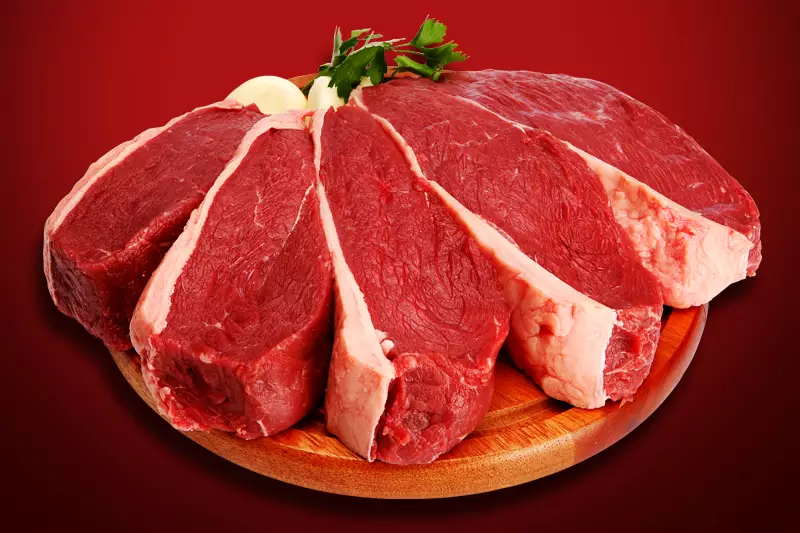
To stand out in the international meat import and distribution market, you definitely need to go through Brazil and access the Largest Meat Supplier Powerhouses in the world.
When it comes to the global meat market, Brazil is undeniably a powerhouse, consistently ranking as one of the top exporters of beef, poultry, and pork. Whether you’re an importer seeking premium halal chicken, chicken paws, or high-quality beef, Brazil’s largest meat suppliers offer a diverse portfolio of products, all with a reputation for excellence. In this article, we’ll dive into the top 10 largest meat exporters from Brazil, shedding light on their strengths and why they should be your go-to suppliers.
Brazil is one of the largest beef exporters in the world. In 2024, the country broke an export record, with an increase of around 26% compared to the previous year.
Beef exports in 2023
The volume exported was 2.536 million tons, an increase of 8.15% compared to the previous year
Total revenue fell 17.15%, to US$ 10.845 billion
Beef exports in 2024
The country broke an export record, with an increase of around 26% compared to the previous year
In September, shipments were 286,750 tons, which corresponds to an increase of 15.6% compared to August 2024
Contents
JBS S.A. is the world’s largest meat processing company, making it a top choice for those seeking a reliable supply of high-quality beef, poultry, and pork. The company’s strict adherence to Halal standards has made it a preferred partner in markets requiring halal certification. JBS’s global reach, strong logistics, and commitment to sustainability ensure that importers receive top-tier products on time.
Click here and access direct contacts from the JBS Export Sector
BRF S.A. is a major player in both the Brazilian and global markets. Specializing in chicken, turkey, and pork, BRF’s Sadia and Perdigão brands are recognized for their superior quality and flavor. The company also has extensive expertise in supplying Halal meat, particularly to Middle Eastern and Southeast Asian countries.
Minerva Foods stands out as a top beef exporter, known for providing premium cuts and focusing on animal welfare and environmental sustainability. Their extensive range of halal-certified beef products ensures that they meet the demands of various markets, including the Middle East and North Africa.
As one of the largest beef producers in the world, Marfrig Global Foods offers a robust supply chain and top-quality products. With processing plants certified to produce halal meat, Marfrig serves global markets with premium beef cuts that meet the highest international standards.
Click here and access direct contacts from the Marfrig Export Sector
Seara Alimentos, a leading name in poultry, has an extensive export portfolio that includes halal chicken and other premium poultry products. Their dedication to food safety, coupled with innovation in product packaging, makes them a trusted partner for importers worldwide.
Aurora Alimentos is a key player in the Brazilian pork and poultry industry. With over 50 years of experience, they supply high-quality products that are particularly popular in Asia, including chicken paws, a growing segment in the region. Their commitment to sustainability and animal welfare sets them apart from other suppliers.
As a cooperative-based company, Aurora Foods is one of the largest producers of pork and poultry in Brazil. Their range of halal-certified products, including halal chicken and chicken paws, caters to markets around the globe. Their focus on quality and safety guarantees satisfaction for their international customers.
Agrosul specializes in beef and poultry, delivering consistently high-quality products to the international market. Their halal certification and rigorous quality standards make them a preferred supplier in countries with strict halal meat requirements.
Frigol S.A. is one of the top exporters of beef and poultry from Brazil. They provide a variety of cuts, with an emphasis on halal-certified products. Their advanced processing techniques ensure that their meats meet the specific needs of each market, including those looking for premium halal options.
Mataboi Alimentos focuses on beef, with a particular strength in offering specialized cuts for various international markets. Their adherence to strict halal processing guidelines and their commitment to innovation in the meat industry make them a strong contender for importers looking for reliable Brazilian beef suppliers.
Brazil’s meat industry has earned its place on the global stage for several reasons:
If you’re an importer looking for the best suppliers of halal chicken, beef, or chicken paws, Brazil’s top meat exporters should be on your radar. For more detailed information, including direct contact details for 100 of Brazil’s leading meat exporters, download our comprehensive Brazilian Meat Exporters Guide. This guide will give you exclusive insights into certified suppliers who can meet your specific needs in the global meat market.
Don’t miss out on the opportunity to connect with 100 top Brazilian meat exporters. Our Brazilian Meat Exporters Guide is packed with vital information, including:
For a limited time, we’re offering a special discount on our updated guide. Click here to download your guide today and take the first step toward building a strong partnership with Brazil’s meat supply powerhouses!
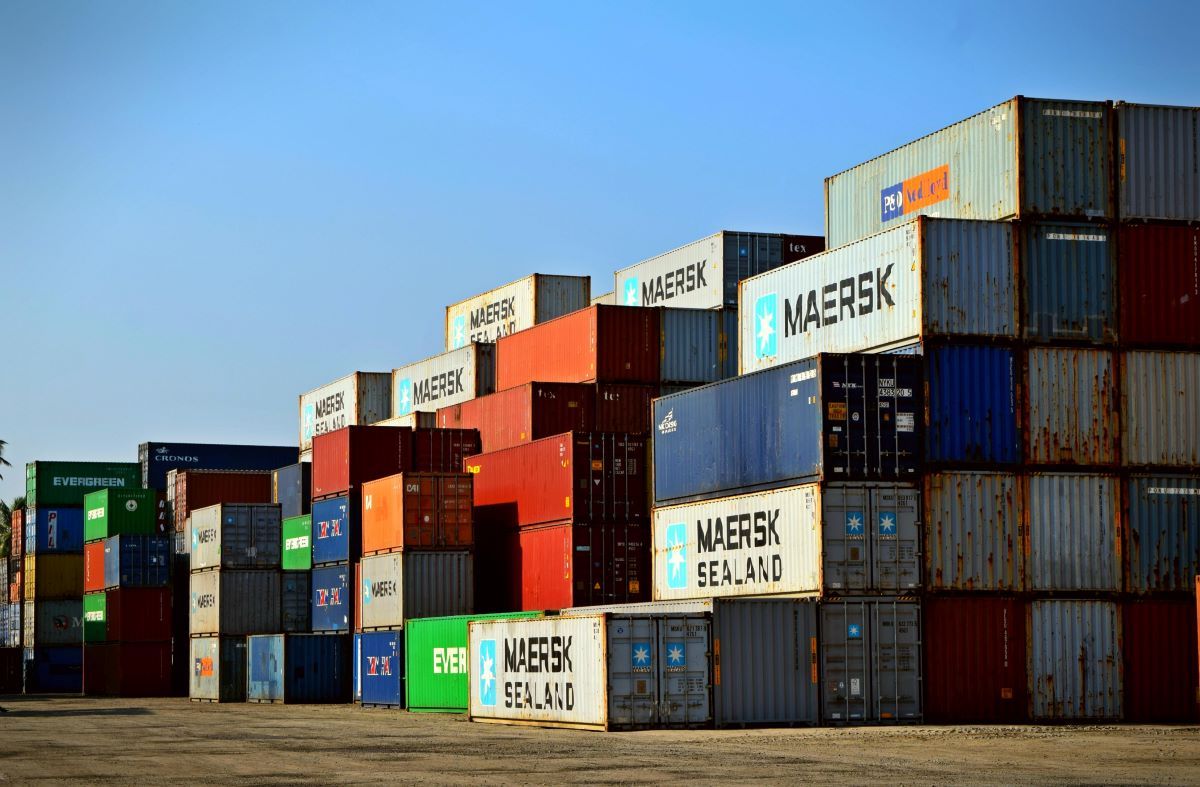
Importing sugar from Brazil can be a complex process, especially for those doing it for the first time. This step-by-step guide was created to help agricultural commodity importers understand the process, from initial planning to the completion of the purchase and receipt of the sugar. We will cover what needs to be done before the purchase, during the negotiation, and after the purchase, ensuring you are well-informed at every stage.
Many customers who come to our company every day are called “adventurers”, amateurs, and even fake buyers. This situation occurs because many arrive motivated, full of expectations, committed to the success of the negotiation, but without any purchasing capacity.
Adventurers really want to make importing agricultural commodities viable, but they do not even know the market pricing metrics. And, therefore, they are easy prey for fake exporters who pay prices well below market practice.
To avoid wasting time, our team has prepared a step-by-step guide to help importers with little experience to structure and plan their import, before going out there and requesting quotes from all the exporters they find on Google.
Contents
Researching Demand and Prices:
Import Models:
Legislation:
Total Cost Spreadsheet:
Corporate Account in a Top 50 Bank:
This is where most sugar importers wanting to import from Brazil for the first time fail. Without purchasing capacity through one of the world’s top 50 banks, your company will fail. Enabling the financial structure will avoid wasting time and discrediting your company in front of suppliers.

Supplier Evaluation:
Quotation and Contract:
Insurance:
.
Documentation:
Storage:
Distribution:
Importing sugar from Brazil can be a profitable venture, but it requires detailed planning and careful execution. This guide provides a solid foundation to start the process, ensuring that each step is understood and successfully carried out. If you are interested in importing sugar in containers, consult the Guide to Sugar Exporters in Containers by Mello Commodity. For larger volumes, follow the detailed guidelines above for a successful import
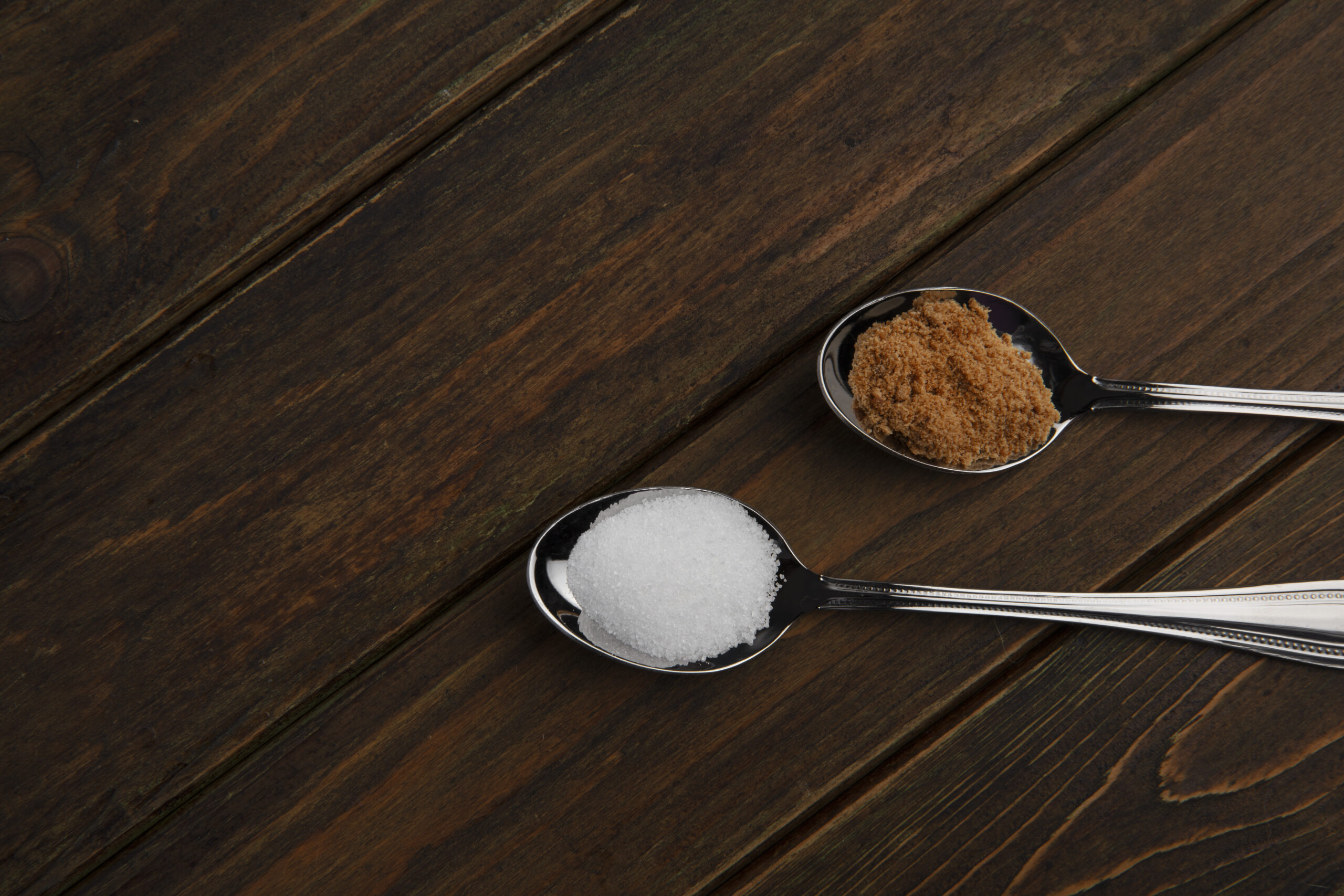
The global market for raw brown sugar has seen significant growth, driven by the demand for products that can be refined and processed into various forms of sugar. Brazil, as one of the world’s largest producers and exporters of sugar, plays a vital role in this sector. This article examines the profile of companies importing brown sugar from Brazil, highlighting their characteristics, market trends, and factors influencing their import decisions. Based on market data and recent studies, the aim is to provide a detailed and substantiated view to strengthen Mello Commodity’s credibility among sugar importers.
Contents
1.1 Brazilian Production and Export
Brazil is a world leader in sugar production, with a significant share of the global market. In 2022, Brazilian sugar production reached approximately 38 million tons, with around 26 million tons exported. Although most of this production is refined and raw sugar, brown sugar also represents an important segment due to the growing demand from companies needing raw material for processing.
1.2 Global Trends
Brown sugar is highly sought after by companies with refining and processing capabilities, allowing them to produce different types of sugar, such as refined, crystal, and liquid sugar. The growth of the global food industry and the diversification of sugar-derived products are factors driving the demand for brown sugar.
2.1 Types of Companies
Companies importing brown sugar from Brazil can be classified into different categories based on their size and market segment:
– Large Refineries and Mills: Companies like Tereos and Südzucker are examples of major players in the global sugar market. They import brown sugar in large volumes for processing in their own facilities, converting it into refined, crystal, and other sugar products.
– Food and Beverage Industries: Food and beverage companies that use brown sugar as a basic ingredient in their recipes are important to ensure a constant and cost-effective supply.
– Distributors and Wholesalers: These companies purchase brown sugar to redistribute to smaller refineries and food product manufacturers, playing a crucial role in the sugar supply chain.
2.2 Geographic Location
The location of brown sugar importing companies is primarily concentrated in regions with high processing capacity and significant demand for refined sugar products. Key regions include:
– Europe: Countries such as Germany, the United Kingdom, France, and the Netherlands are major importers, thanks to their robust refining infrastructure and high demand for refined sugar in their food industries.
– North America: The United States and Canada are significant markets, driven by large industrial refining capacities and diversified sugar products demand.
2.3 Characteristics and Needs
Companies importing brown sugar generally share common characteristics:
– Refining Capacity: They require adequate infrastructure to process brown sugar into its various refined forms, such as white, crystal, and liquid sugar.
– Certification and Quality: They seek suppliers with quality certifications, ensuring that the imported brown sugar can be transformed into safe and high-quality products.
– Stability and Reliability:They value suppliers who offer consistent product quality and timely deliveries, facilitating continuous refinery operations.
3.1 Price and Competitiveness
The price of brown sugar is a decisive factor for importers. The sugar market is highly competitive, and price fluctuations can significantly influence purchasing decisions. Brazil’s production efficiency allows the country to offer competitive prices, making it an attractive supplier.
3.2 Product Quality
The quality of Brazilian brown sugar is widely recognized. The purity and consistency of the product are important attributes that influence importer preference. Good agricultural practices and advanced production processes contribute to maintaining the superior quality of Brazilian sugar.
3.3 Commercial Relations and Logistics
Strong commercial relationships and efficient logistics are essential for successful exports. Transit time, delivery reliability, and customer support are critical aspects. Brazilian companies that can offer a complete service, from production to delivery, have a significant competitive advantage.
3.4 Regulations and Tariffs
Import regulations and tariffs also influence companies’ decisions. Countries like the United States and European Union members have strict regulations on the quality and origin of food products. Compliance with these regulations is crucial to avoid trade barriers and additional costs.
4.1 Partnership with Large Refineries
A success story is the partnership between a Brazilian brown sugar mill and a large refinery in Germany. The mill managed to supply high-quality brown sugar, meeting the refinery’s strict specifications. This partnership resulted in a significant increase in exports and the consolidation of market presence in Europe.
4.2 Expansion into the North American Market
Another success story involves a cooperative of brown sugar producers in Brazil that secured an agreement with a network of refineries in the United States. Through this agreement, the cooperative expanded its exports, benefiting from the high demand for refined sugar in the North American market.
5.1 Challenges
– International Competition: Besides Brazil, countries like India and Thailand are also major producers of brown sugar. Competition on price and quality is intense.
– Climatic Variations: Sugarcane production is highly dependent on climatic conditions. Droughts or excessive rains can affect the harvest and, consequently, export capacity.
5.2 Opportunities
– Emerging Markets: Emerging markets in Asia and Africa are showing an increased demand for refined sugar products, representing an opportunity to expand brown sugar exports.
– Technological Innovations: Investments in agricultural technology and production processes can improve the efficiency and quality of brown sugar, offering a competitive advantage.
The profile of companies importing brown sugar from Brazil is diverse, encompassing large refineries, food and beverage industries, and distributors. These companies value the quality, refining capacity, certification, and reliability of Brazilian suppliers. Despite challenges, Brazil holds a privileged position in the global brown sugar market due to its production capacity and quality reputation.
For Mello Commodity, understanding the needs and expectations of these importers is crucial to strengthening its market position and building lasting commercial relationships. Investing in certifications, sustainable practices, and logistical efficiency are fundamental steps to ensuring continued success in brown sugar exports.
Emerging opportunities in new markets and the adoption of technological innovations offer a promising path for the expansion and consolidation of Brazil’s presence in the global brown sugar market. By aligning its strategies with importers’ demands, Mello Commodity can not only increase its exports but also strengthen its brand as a reliable and sustainable brown sugar supplier.
References
1. **CEPEA** – Center for Advanced Studies in Applied Economics
2. **FAO** – Food and Agriculture Organization of the United Nations
3. **Südzucker** – Annual Reports
4. **Eurostat** – European Union International Trade Statistics
5. **USDA** – United States Department of Agriculture
6. **Central Bank of Brazil** – Market Reports
7. **Conab** – National Supply Company
8. **DHL** – Logistics and Transport Reports
9. **European Commission** – Import Regulations and Documents
10. **ABPA** – Brazilian Sugar Producers Association
11. **APAS** – São Paulo Supermarkets Association
12. **INPE** – National Institute for Space Research
13. **Embrapa** – Brazilian Agricultural Research Corporation
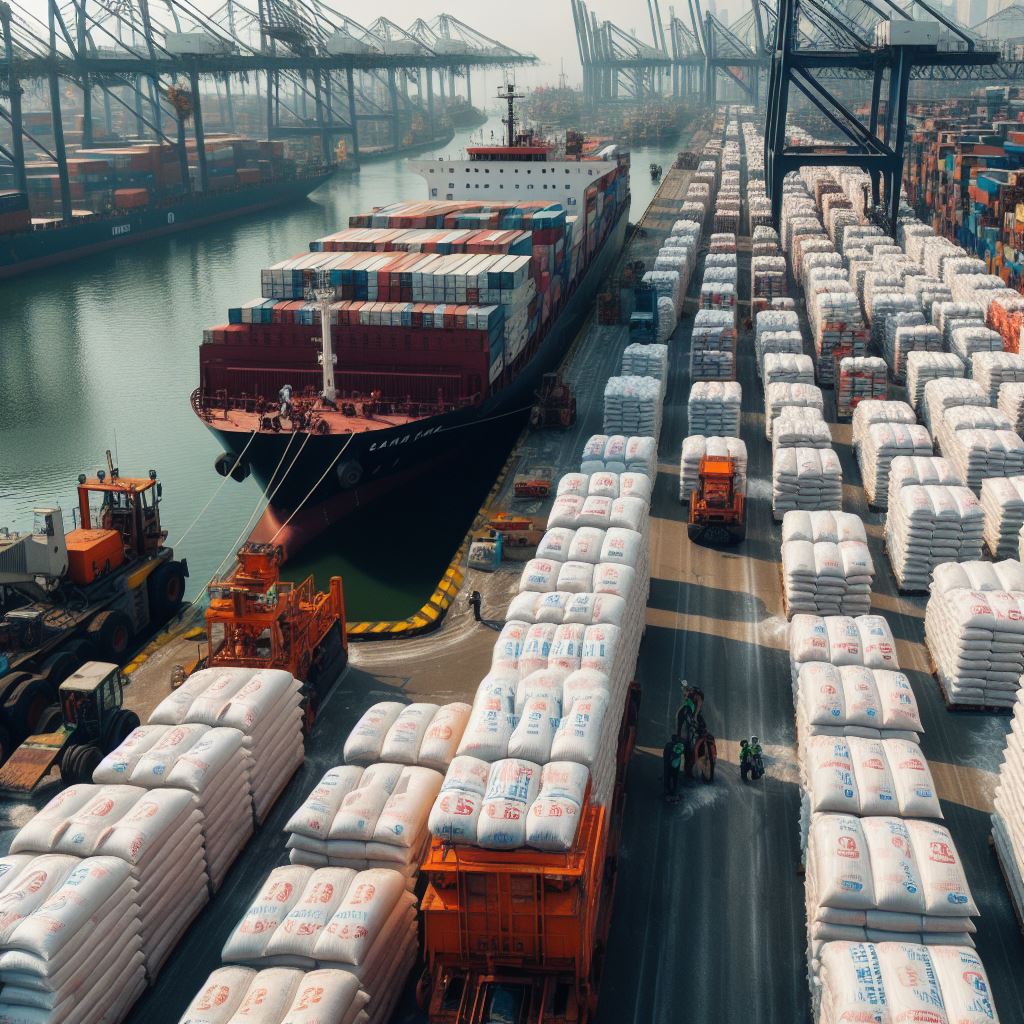
Contents
In the Brazilian scenario, sugarcane mills are not authorized to engage in direct exports. Therefore, they adopt strategies such as:
1 – Selling sugar production to cooperatives authorized for export.
2 – Selling quotas to investors or companies specialized in sugar export.
3 – Establishing a second company with commercial export activities (Rarely).
It is a misconception to think that exporters maintain large stocks of crystal, refined, or raw sugar waiting for export. In Brazil, semi-finished raw materials are stored in silos. When a purchase is confirmed, sugar is finalized, undergoes sanitary and quality verification analyses, is bagged, and sent to the shipping port.
This is due to various reasons: 1 – Sanitary issues related to product preservation and quality (risks of contamination, moisture, product deterioration). 2 – Lack of adequate warehouses for storing refined products due to intense production of agricultural commodities, resulting in a competition for storage space. 3 – High costs of warehouse rental.
If you import refined or crystal sugar for distribution in 1kg, 5kg, and 25kg bags, it is recommended to import smaller quantities in the CONTAINER mode. Download the Container Sugar Exporters Guide to negotiate directly with the exporter.

SUGAR
For imports destined for industry and large distributors, bulk orders or palletized cargo above 12,500 metric tons, contact Mello Commodity.
If you are inexperienced in this market, we suggest reading an article that addresses fundamental issues to make sugar importation viable, allowing your company to prepare logistically and financially before requesting quotes.
ARTICLE: The Fundamental Mistake in Sugar Importation You Should Avoid – https://www.linkedin.com/pulse/fundamental-mistake-sugar-importation-you-should-mello-commodity-dkilf/?trackingId=C%2FPi67x1RLOR8jgxZbl4oQ%3D%3D
Experienced sugar importers familiar with international trade procedures can CLICK HERE to request a quote from Mello Commodity.
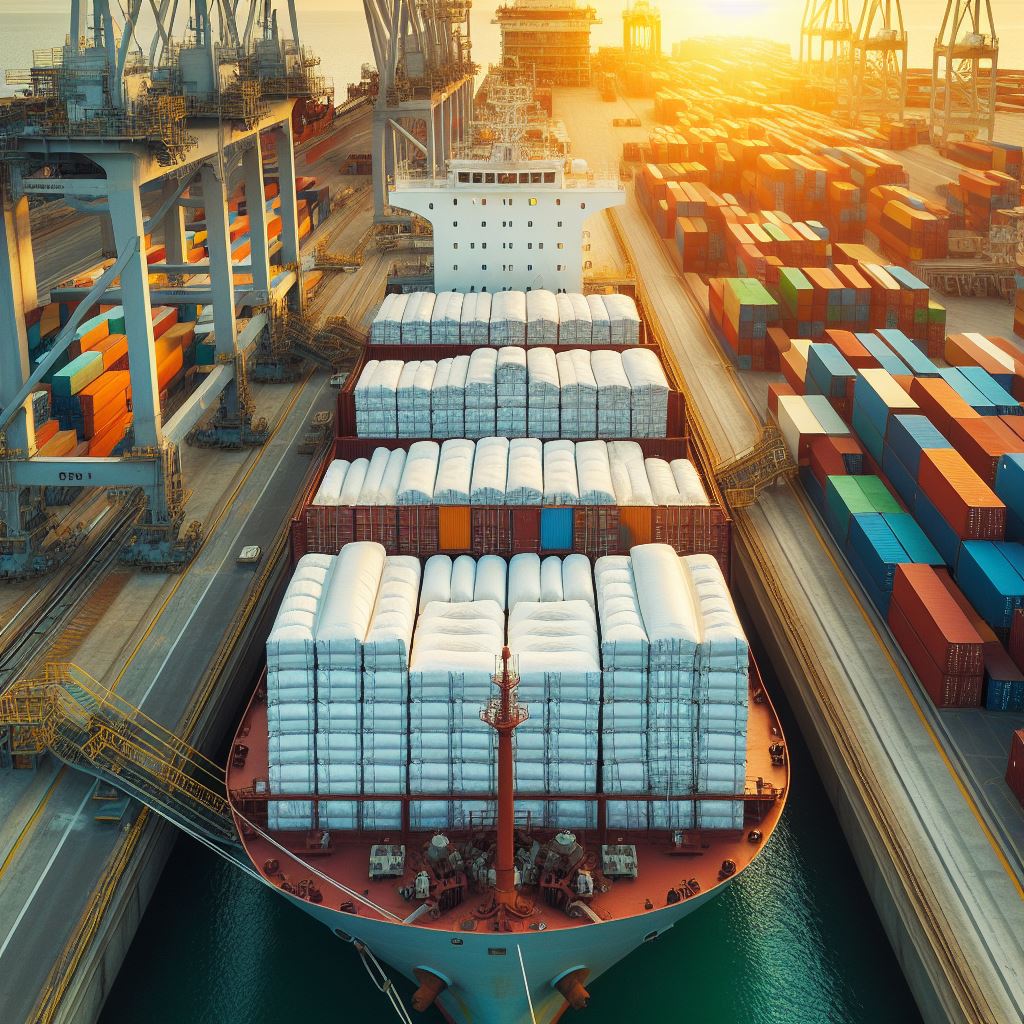
When it comes to sugar exports, Brazil stands out as a major player in the global market. This article serves as your gateway to the world of Brazilian sugar exporters, providing valuable insights into the best suppliers and wholesale sugar products. To make your exploration seamless, we have compiled a detailed guide featuring the top 20 companies in the Brazilian sugar industry. Download the PDF now to access essential contacts and data on the best Brazilian white sugar, Icumsa 45, and more.
The 20 largest wholesale sugar exporters in Brazil are responsible for 80% of all sugar shipments made at the port of Santo in São Paulo. These companies are capable of fulfilling orders for Refined Sugar, Crystal Sugar, Brown Sugar, Liquid Sugar, Demerara Sugar, among others.
Contents
Brazil is a specialist in the production of cane sugar. It is currently the largest producer and exporter of sugar in the world, this is due to the excellent climate for the production of the sweetener, the specialized management of sugar cane mills and the excellent port infrastructure that allows Brazil to ship and export sugar to the world. all.
Brazil Sugar Exporters Overview:
– Meet the key players driving the industry and contributing to Brazil’s reputation as a top sugar exporter
– Don’t waste time and money randomly searching for sugar suppliers. Eliminate middlemen and fake sugar sellers out of the way
– Increase your company’s competitiveness by quickly expanding the number of sugar suppliers
– Obtain competitive prices by negotiating directly with: sugar cane mills, sugar cooperatives, trading companies specializing in the supply of Brazilian sugar
– Explore the characteristics of the best Brazilian white sugar, known for its quality and versatility.
– Import refined white sugar or crystal white sugar. Order this product in personalized packaging with your company name. Sugar packages with personalized logo, 1kh, 5 kg, 25 kg.
– Discover a diverse range of wholesale sugar products offered by Brazilian exporters.
– Access the largest sugar wholesalers in Brazil. In a few clicks you will have a PDF with the name, address, website, telephone and email of the largest sugar sellers in Brazil
– I would like to point out that these wholesale sugar sellers preferably serve orders for importing sugar in containers, that is, orders from 10 containers = 260 metric tons
– Scammers use the names of large sugar suppliers in Brazil to carry out scams. They create fake websites, clone email, and pretend to be renowned “sugar sellers” in the market, but in reality they will just make you fall into a trap. By downloading the Sugar Exporters Guide you will eliminate this risk, as all information has been verified
In just three steps you will have the Sugar Suppliers Guide on your computer, tablet or smartphone. Simply access the exclusive link, click on download guide, fill in your access details, pay the download fee and download the guide.
Embark on your journey into the world of Brazilian sugar exporters with our comprehensive guide. Whether you are seeking the best Brazilian white sugar or exploring wholesale opportunities, this resource is designed to meet your needs. Download the PDF now to access vital information and establish connections with the top 20 Brazilian sugar suppliers and wholesalers. Your gateway to quality and excellence in the sugar industry awaits!
ATTENTION: This Guide is focused on facilitating access to the largest containerized sugar exporters. If you have larger orders from 12500 tons in bulk or big bag, talk to MELLO COMMODITY right now – Request a quote.
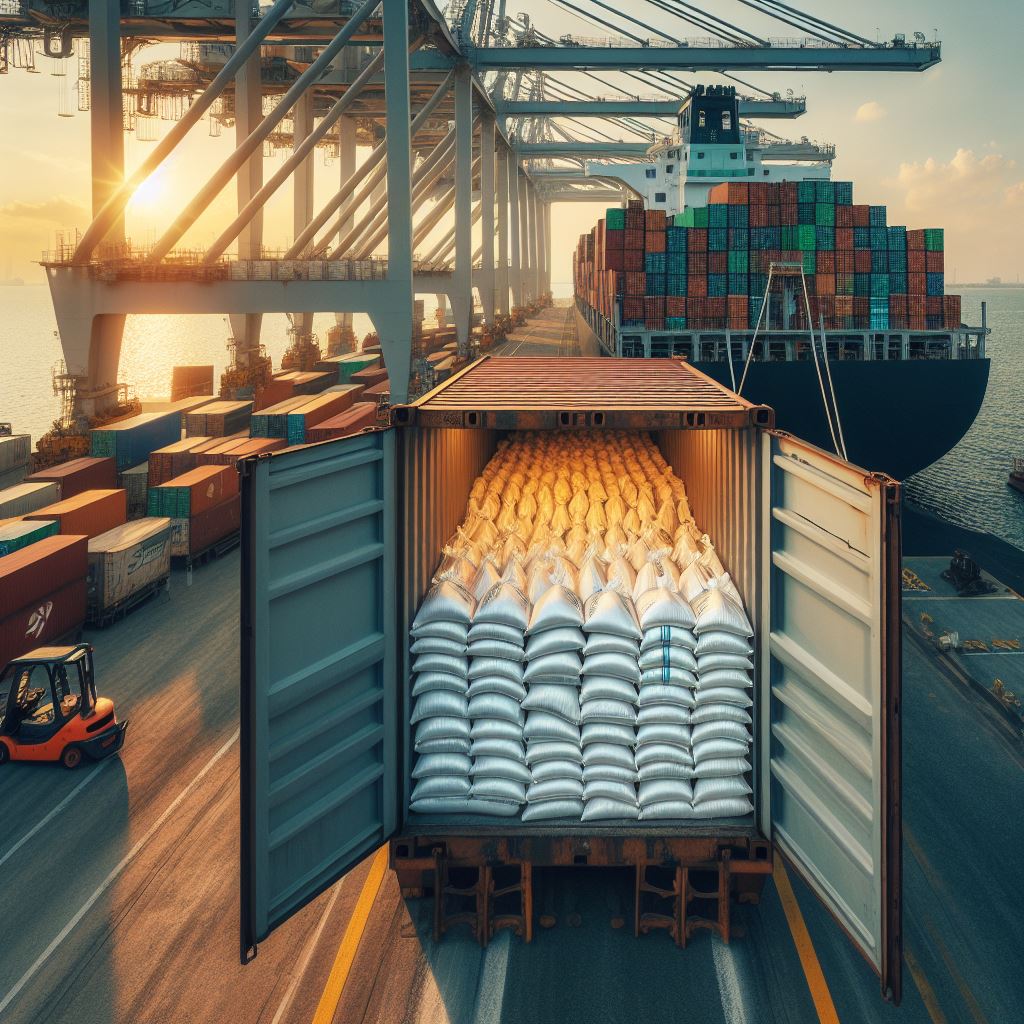
Are you ready to take a step forward in the sugar industry and ensure your company stays ahead of the game? Introducing the Brazilian Sugar Exporters Guide, your exclusive source for the best contacts in containerized sugar export. This guide is the compass that will lead your company directly to sugarcane mills, exporting cooperatives, and specialized trading companies, allowing you to negotiate directly with the market’s major players.
Exclusive Benefits:
1 – Eliminate Intermediaries and False Sellers:
Free yourself from concerns about dubious transactions. Our guide provides contact details for the top 20 exporters, ensuring you negotiate with confidence and security.
2 – Negotiate Directly with Major Players:
Establish direct connections with sugarcane mills, exporting cooperatives, and specialized trading companies. Exclusive opportunities for advantageous deals await you.
3 – Best Offers from the Brazilian Market:
Access the best sugar offers in the Brazilian market. Be competitive by negotiating directly with the country’s major exporters.
4 – Expand Your Supplier Database:
Diversify your portfolio by importing different types of sugar: Refined Sugar, Crystal Sugar, Raw Sugar, Muscovado, Demerara, etc. The guide opens doors to a wide variety of options.
5 – Import from Certified Companies:
Ensure quality by importing from certified companies with in-house production and the ability to provide customized packaging, tailored to your needs, from 1 kg to 1000 kg.
This guide is your gateway to the Brazilian sugar universe. Discover opportunities for Brown Sugar, Refined Sugar, White Sugar, Demerara Sugar, and more. With our accurate data, you can explore Wholesale Sugar options and ensure a steady supply. Import with ease and efficiency with containerized sugar.
By acquiring the Brazilian Sugar Exporters Guide, you are investing in your company’s success. This is not just a guide; it is the key to making your company more competitive in the international market. Don’t miss this opportunity.
Discover how excellence in Brazilian sugar can boost your business. Click here to access the Exporters Guide now!
Don’t miss the chance to dominate the international sugar market with the right information at your fingertips. Success is just a click away!
Global Sugar Price Reference: https://www.investing.com/commodities/london-sugar
© 2017 Construction Realestate Theme
Design & Developed by Buy WordPress Templates Return To Top
